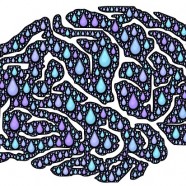
Previously we have discussed the inherent medical limitations of antidepressants, as well as their negative effects on the body and as yet to be discussed is their harmful interactions with other drugs. However, the widespread use of antidepressants presents additional, behavioral issues; and as depression is at once a physical and mental disorder, these additional dangers should be explored and understood.
Aggressive Behavior
The term “aggressive behavior” covers a range of action patterns, from verbal abuse to deadly physical violence. 1
Characterized as a mental disorder, aggressive behavior is broken down into the following categories:
• Post-traumatic stress disorder (PTSD)
• Intermittent explosive disorder
• Irritable aggression
• Depression-linked aggression
• Increased autonomic arousal (sudden and uncontrolled reactive aggression)
Societies worldwide are dealing with an alarming death rate due to violent behavior. Of these, domestic violence and other violent acts are steadily on the rise, in turn warranting more education and stricter regulations of law enforcement. 2
School Shootings and Antidepressants
Unwanted or inappropriate behaviors fueled by drug side effects and a lack of proper brain/body nutrition has developed into a major societal problem. Aggressive and violent behavior has escalated to the point that traumatic events involving school shootings have become more commonplace than ever before.
Research supports the involvement of antidepressant medications in the prevalence of these incidences, due either to the medications these individuals are taking, or else weaning off. Few have begun to address this area of concern, focusing instead on the related issue of gun control. 3
Aggression and Brain Psychopathology
The causes of aggressive and violent behavior typically involve the brain’s biology and biochemical structure. We are aware of specific neurotransmitters that are implicated with aggression, cognition and other psychiatric disorders, 4, 5, but what of the contributing factors that set up a person to manifest these inappropriate behaviors?
For example, early indicators of childhood ADHD, especially when combined with an unhealthy family environment and learning difficulties, have often resulted in delinquent behavior during adolescent years.
As of 2016, 30.8 percent of criminal offenders possessed both ADHD and behavior disorders. Another problem to deal with is the prevalence of substance abuse and the development of addictions, all of which enhance abusive and violent behavior. 6
What Is Most Needed to Correct Behavior Imbalance
As a practitioner who often treats conditions of ADHD and autism, the process isn’t dissimilar to treating cognitive imbalance/deficiency in adults. The brain and the endocrine system require special attention, as a rule, and the body as a whole must be nutritionally supported. But the focus in these instances is mainly on supporting neurotransmitters, key glands (thyroid, adrenals, hypothalamus, and pituitary), maintaining amino acid balance and reducing brain inflammation, primarily through antioxidants.
While taking into account social and biochemical factors, a continued lack of proper nutrient support creates higher vulnerability, especially during chronic stress events. During such circumstances (such as emotional outbursts), the body requires vast amounts of nutrients to cope with the increased energy requirements of our body. Coupled with prolonged stress and a lack of quality nutrition, all negative aspects of emotional and general health will continue to worsen.
Behavioral Issues and Malnutrition
Numerous studies have shown specific dietary absences to be associated with a predisposition towards violence, crime and antisocial conduct. This relationship was shown to exist between maladaptive behaviors and the following: chemical additives, food sensitivities and intolerances, sugar consumption, lack of fatty acids, low mineral/vitamin intake along with the development of hypoglycemia. 7
Further studies confirm the benefits of better-quality nutrition in adults with mood disorders and deviant behavior. Improved mental health in conjunction with increased nutrient intake resulted in studies showing a need for nutrient digestion and psychiatric performance. 8, 9
We have reviewed many complications involving antidepressant and psych medications, including their physical impact on our body systems and their negative emotional and behavioral side effects, as well as their extended usage problems. Overall, the number of side effects associated with SSRIs is extensive—and still growing.
Take careful notice of how specific nutrients are needed to support the body, especially when major imbalances occur causing unnatural behavior. For a comprehensive solution that works to replace SSRI’s and reverse their body/brain damage, go to my recently published book “Reverse Depression Naturally”.
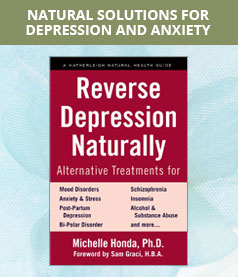
References
1. Krämer, U.M., Riba, J., Ritcher, S., & Münte, T.F. (2011). An fMRI study on the role of serotonin in reactive aggression. PLoS ONE, 6(11), 1-8. http://journals.plos.org/plosone/article?id=10.1371/journal.pone.0027668
2. Krug, E., et al., (2002). World Report on Violence and Health. Geneva: World Health Organization. http://www.who.int/violence_injury_prevention/violence/world_report/en/introduction.pdf
3. Federal Investigation into Link Between Psych Drugs and School Shootings. Constitutional Attorney Jonathan Emord. By J. D. Heyes and Atty. Jonathan Emord.Global Research, February 22, 2018. NaturalNews.com 21 February 2018. https://www.globalresearch.ca/federal-investigation-into-link-between-psych-drugs-and-school-shootings/5629959
4. Mercadillo, R.E., & Arias, N.A. (2011). Violence and compassion: abioethical insight into their cognitive bases and social manifestations. International Social Science Journal 221-232. https://www.ncbi.nlm.nih.gov/pmc/articles/PMC4334407/
5. McCabe, P.C., & Shaw, .S.R. (2010). Developments in neuropsychiatric treatment. In. McCabe, P.C., & Shaw, S.R. (Eds.), Psychiatric disorders. Current topics and interventions for education. (pp. 2-7). California, USA: National Association of School Psychologists & CORWIN. https://www.isom.ca/wp-content/uploads/2017/10/Nutrient-Depletion-Induced-Neuro-Chemical-Disorder-Brain-Hunger-as-the-Basis-of-Psychopathology-and-Aggressive-Behavior-32.5.pdf
6. Pliszka, S.R. (2016). Neuroscience for the mental health clinician. (2nd ed). New York: The Guilford Press. https://www.guilford. com/books/Neuroscience-for-the-Mental-Health-Clinician/Steven-Pliszka/9781462527113
7. José R. Rodríguez, Michael J. González, Jorge Miranda.Nutritional deficiencies and maladaptive behaviors: a possible new paradigm for the prevention of aggressive behaviors. Vol 18, No 2 (2008). http://revistas.uv.mx/index.php/psicysalud/article/view/662
8. Davidson, K.M., & Kaplan, B.J. (2012). Nutrient intakes are correlated with overall psychiatric functioning in adults with mood disorders. The Canadian Journal of Psychiatry, 57(2), 85-92. https://www.ncbi.nlm.nih.gov/pubmed/22340148
9. Zaalberg, A., Nijman, H., Bulten, E., Stroosma, L., & van der Staak, C. (2009). Effects of nutritional supplements on aggression, rule-breaking, and psychopathology among young adult prisoners. Aggressive Behavior, 35, 1–10. https://www.ncbi.nlm.nih.gov/pubmed/20014286
Copyright © 2021 – All Rights Reserved – Michelle Honda Ph.D.
Announcement
Look for my new forthcoming books “Reverse Depression Naturally” (Spring 2020) “Reverse Inflammation Naturally” (May 31, 2017) “Reverse Thyroid Diseases Naturally” (June 2018) “Reverse Alzheimers/Dementia Naturally” (Nov.2018) “Reverse Heart Disease Naturally” (Jan.31, 2017) and “Reverse Gut Diseases Naturally Nov. 2016
Where to Purchase:
Reverse Gut Diseases Naturally Nov. 2016
Reverse Heart Disease Naturally Jan. 2017
Reverse Inflammation Naturally May 2017
Reverse Thyroid Disease Naturally June 28/2018
Reverse Alzheimers Disease Naturally Nov. 2018
Reverse Depression Naturally Spring 2020
Hatherleigh Press Page Buy Book RGDN
Local Book Stores in US and Canada
Disclaimer
While close attention was given to the accuracy of information in this article, the author accepts neither responsibility nor liability to any person with respect to injury, damage, loss or any circumstances involving alleged causes directly or indirectly related to the information in this article. The sole purpose is to educate and broaden ones awareness. This information is not meant to replace medical advice or services provided by a health care professional.





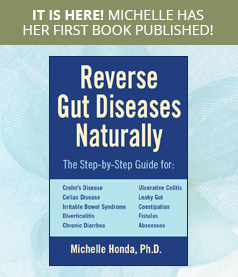


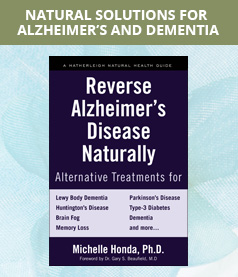
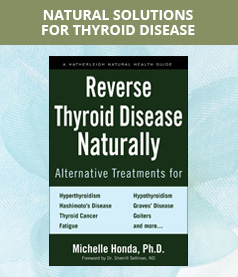

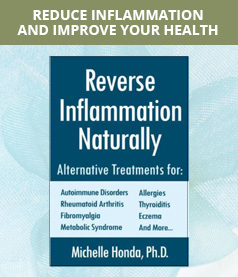
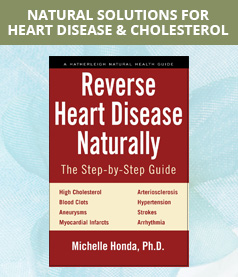
Follow Us!